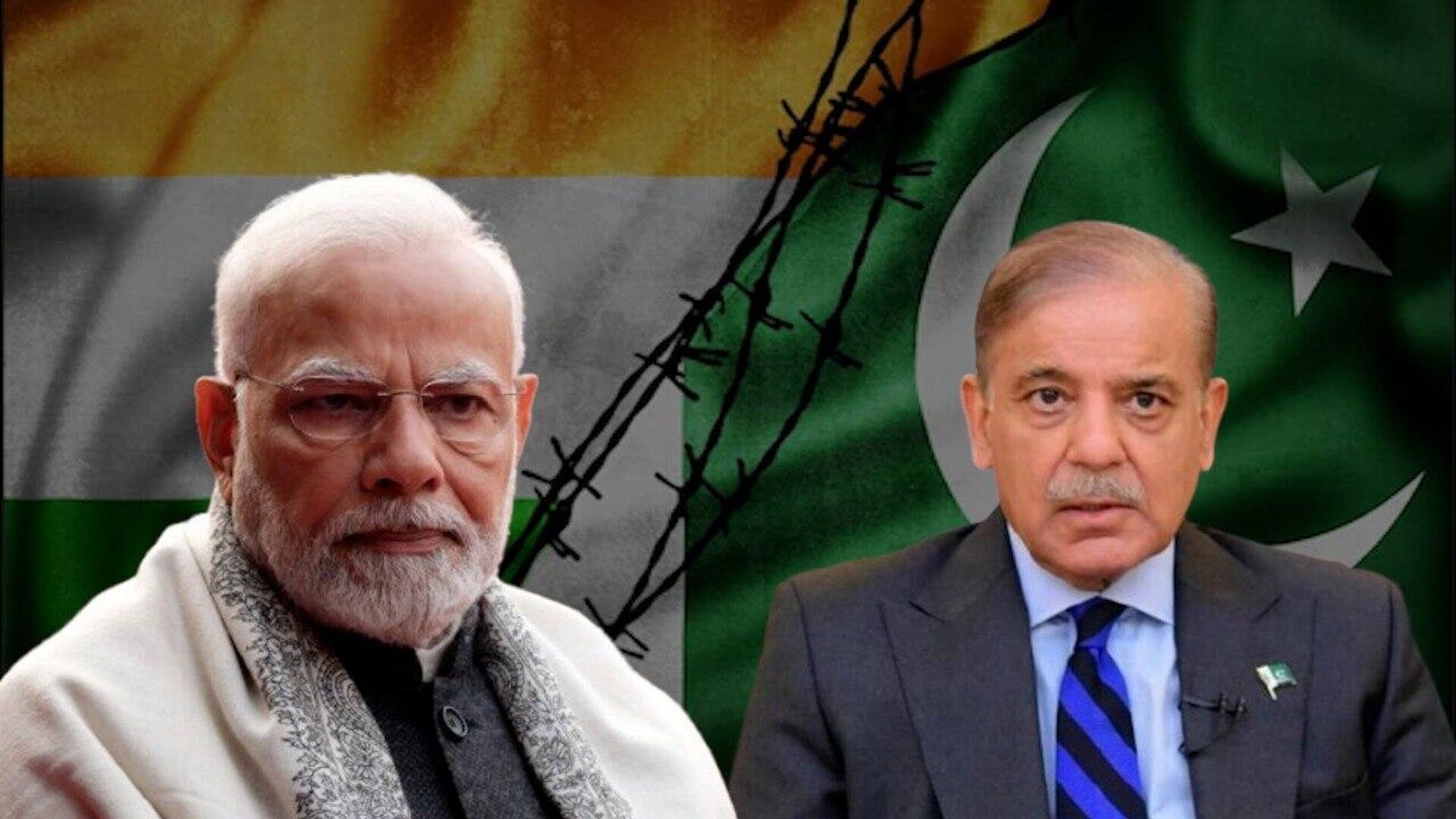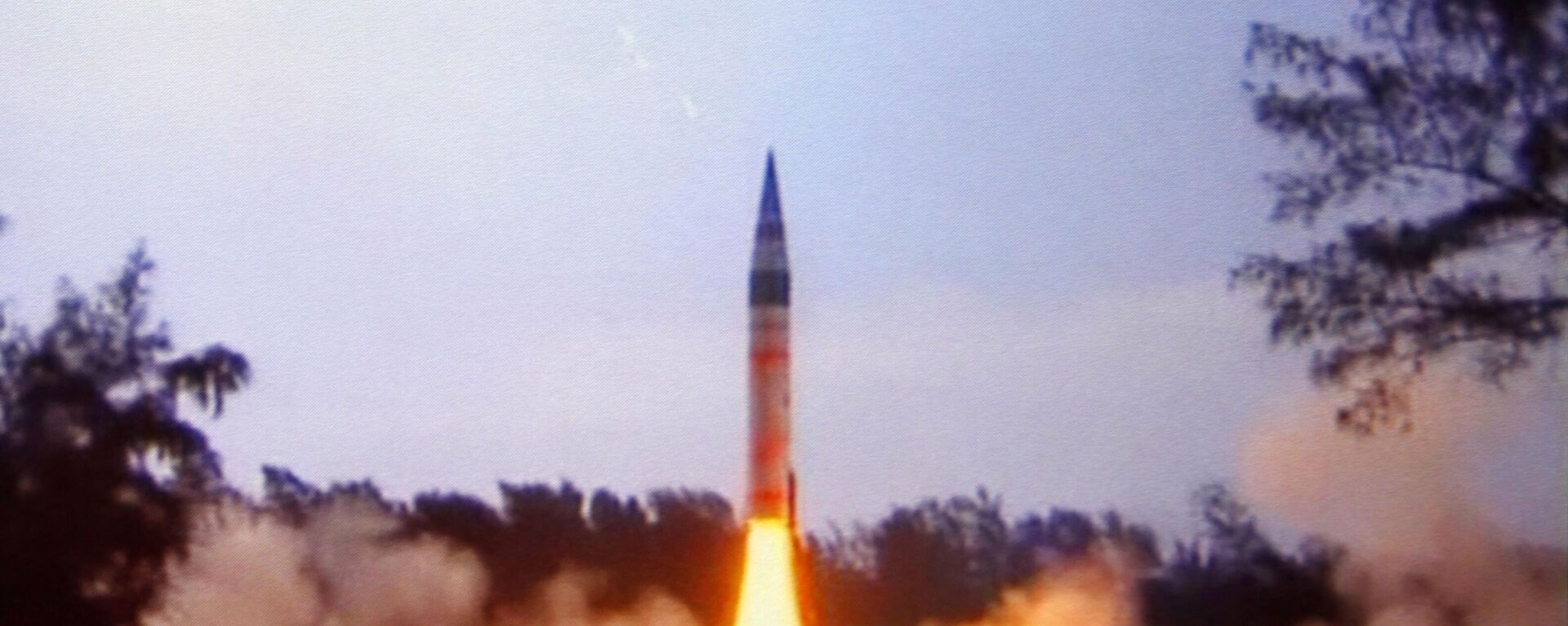https://sputniknews.in/20250429/indian-vets-call-pakistans-statements-bizarre-explain-why-9044421.html
Indian Vets Call Pakistan's Statements 'Bizarre', Explain Why
Indian Vets Call Pakistan's Statements 'Bizarre', Explain Why
Sputnik India
After last week's Pahalgam attack which killed 26 tourists, calls for military action against Pakistan have risen in India, fueled by controversial remarks... 29.04.2025, Sputnik India
2025-04-29T20:39+0530
2025-04-29T20:39+0530
2025-04-29T20:39+0530
sputnik opinion
india
pakistan
islamabad
inter-services intelligence (isi)
pahalgam terror attack
delhi
new delhi
narendra modi
kashmir conflict
https://cdn1.img.sputniknews.in/img/07e9/04/18/9020531_0:0:1280:720_1920x0_80_0_0_488dbf07f297ddcec472803cbeaed478.jpg
India could be planning a special military operation to eliminate the terrorists as well as their handlers, who were behind the Pahalgam terrorist attack in the Kashmir Valley on April 22, experts have said.India will certainly punish Pakistan for the dastardly terrorist attack in Pahalgam so that Islamabad gets a strong message, underlining that such incidents will not go unpunished now. However, New Delhi would also like to limit the level of escalation, retired Air Marshal M. Matheswaran, a veteran of the Indian Air Force (IAF), told Sputnik India.Most likely, it will be a special operation, conducted by its special forces, wherein the perpetrators, both the terrorists and their backers, will be identified and punished or eliminated, he added.The terrorists meticulously planned their every move before killing the tourists from point-blank range, he emphasised. Another aspect of the growing India and Pakistani tensions is the vexed statements being made by Pakistani politicians.Pakistan's controversial statements reflect their fear that escalation would worsen their already struggling economy, making them reluctant to engage in conflict, the defence specialist highlighted.Earlier, Asif stated in an interview with Sky News that Pakistan has historically undertaken covert operations on behalf of Western powers, including the United States, which he described as a mistake. He also warned of an imminent Indian military incursion, which he later backtracked on, stating that his words were misinterpreted.Pakistan's changing statements reflect its allegedly exposure for "harbouring terrorists": when the leadership realises their remarks are premature and provoke international backlash, they backtrack, he explained.Controversial statements from Pakistan are not at all a new phenomenon, retired Colonel Rajeev Agarwal, a senior consultant at the New Delhi-based think tank Chintan Research Foundation, pointed out in a conversation with Sputnik India.This is basically due to two reasons. Firstly, when undertaking operations like Pahlagam, the Pakistan Army and the ISI do not keep the other organs of the state informed. Most of the time, as we saw even during the Kargil War in 1999, too, the civilian government has no clue of what the Pakistani Army is planning, he underscored.The whole of India is outraged by the Pahalgam massacre, and the Indian government has vowed to take the strictest possible action against the terrorists and their perpetrators, he said. A kinetic action may occur at a time and place of India's choosing, Agarwal suggested. In response to ceasefire violations along the Line of Control, Indian forces are addressing the situation and causing significant damage to Pakistani troops, he explained.However, Pakistan may not exercise prudence in its retaliatory measures, and therefore, the conflict escalating quickly cannot be ruled out, he concluded.
https://sputniknews.in/20250426/india-vs-pakistan-military-strength-comparison-9027580.html
india
pakistan
islamabad
delhi
new delhi
kashmir valley
jammu and kashmir (j&k)
Sputnik India
feedback.hindi@sputniknews.com
+74956456601
MIA „Rossiya Segodnya“
2025
Pawan Atri
https://cdn1.img.sputniknews.in/img/07e6/0c/13/139630_147:0:831:684_100x100_80_0_0_8fa2b25903e7787fe6a2698552c167df.png
Pawan Atri
https://cdn1.img.sputniknews.in/img/07e6/0c/13/139630_147:0:831:684_100x100_80_0_0_8fa2b25903e7787fe6a2698552c167df.png
News
en_IN
Sputnik India
feedback.hindi@sputniknews.com
+74956456601
MIA „Rossiya Segodnya“
Sputnik India
feedback.hindi@sputniknews.com
+74956456601
MIA „Rossiya Segodnya“
Pawan Atri
https://cdn1.img.sputniknews.in/img/07e6/0c/13/139630_147:0:831:684_100x100_80_0_0_8fa2b25903e7787fe6a2698552c167df.png
india, pakistan, islamabad, inter-services intelligence (isi), pahalgam terror attack , delhi, new delhi, narendra modi, kashmir conflict, kashmir valley, jammu and kashmir (j&k), terrorism, cross-border terrorism, terrorist attack, terror outfits, pakistan army, indian air force (iaf), indian army
india, pakistan, islamabad, inter-services intelligence (isi), pahalgam terror attack , delhi, new delhi, narendra modi, kashmir conflict, kashmir valley, jammu and kashmir (j&k), terrorism, cross-border terrorism, terrorist attack, terror outfits, pakistan army, indian air force (iaf), indian army
Indian Vets Call Pakistan's Statements 'Bizarre', Explain Why
After last week's Pahalgam attack which killed 26 tourists, calls for military action against Pakistan have risen in India, fueled by controversial remarks from Islamabad. Sputnik India examines the risk of conflict.
India could be planning a special military operation to eliminate the terrorists as well as their handlers, who were behind the
Pahalgam terrorist attack in the Kashmir Valley on April 22, experts have said.
India will certainly punish Pakistan for the dastardly terrorist attack in Pahalgam so that Islamabad gets a strong message, underlining that such incidents will not go unpunished now. However, New Delhi would also like to limit the level of escalation, retired Air Marshal M. Matheswaran, a veteran of the Indian Air Force (IAF), told Sputnik India.
Most likely, it will be a special operation,
conducted by its special forces, wherein the perpetrators, both the terrorists and their backers, will be identified and punished or eliminated, he added.
"I believe that even the Pakistan Army's leadership, or the organisational leadership of the terrorist group behind the attack, will be targeted as elements of the Pakistani state, most notably, their notorious spy agency, Inter-Services Intelligence (ISI), and sections of the Pakistani military were certainly the facilitators in this attack," Matheswaran suggested.
The terrorists meticulously planned their every move before killing the tourists from point-blank range, he emphasised.
Another aspect of the growing India and Pakistani tensions is the vexed statements being made by Pakistani politicians.
Pakistan's controversial statements reflect their fear that escalation would worsen their already struggling economy, making them reluctant to engage in conflict, the defence specialist highlighted.
"Nonetheless, because their leaders must address their domestic constituency, they continue to make statements that are often confusing and bizarre. This is the main reason behind their claims of being ready for war with India, and of India preparing an attack on Pakistan, before backtracking on their own remarks," Matheswaran stated, referring to Pakistan's Defence Minister Khawaja Muhammad Asif's statements.
Earlier, Asif stated in an interview with Sky News that Pakistan has historically undertaken covert operations on behalf of Western powers, including the United States, which he described as a mistake. He also warned of an imminent Indian military incursion, which he later backtracked on, stating that his words were misinterpreted.
Pakistan's changing statements reflect its allegedly exposure for "harbouring terrorists": when the leadership realises their remarks are premature and provoke international backlash, they backtrack, he explained.
Controversial statements from Pakistan are not at all a new phenomenon, retired Colonel Rajeev Agarwal, a senior consultant at the New Delhi-based think tank Chintan Research Foundation, pointed out in a conversation with Sputnik India.
This is basically due to two reasons. Firstly, when undertaking operations like Pahlagam, the Pakistan Army and the ISI do not
keep the other organs of the state informed. Most of the time, as we saw even during the Kargil War in 1999, too, the civilian government has no clue of what the Pakistani Army is planning, he underscored.
"Secondly, given the high expectation of a powerful and punitive response from India, the Pakistani establishment is speaking in differing voices. Sometimes, they try to come out with bold statements, daring India to respond, but have to soon backtrack, given the threat of an absolutely devastating response from India," the Indian Army veteran underscored.
The whole of India is outraged by the Pahalgam massacre, and the Indian government has vowed to take the strictest possible action against the terrorists and their perpetrators, he said.
A kinetic action may occur at a time and place of India's choosing, Agarwal suggested. In response to ceasefire violations along the Line of Control, Indian forces are addressing the situation and causing significant damage to Pakistani troops, he explained.
"In such a situation, the possibility of a military escalation between India and Pakistan cannot be ruled out. India would like to undertake measures that inflict the required punishment on the terrorist infrastructure and convey a hard and bold message to Pakistan not to ever think of a 'Pahalgam' in the future, but keep the threshold of the escalatory ladder below a full-scale military engagement," Agarwal stressed.
However, Pakistan may not exercise prudence in its retaliatory measures, and therefore, the conflict escalating quickly cannot be ruled out, he concluded.



